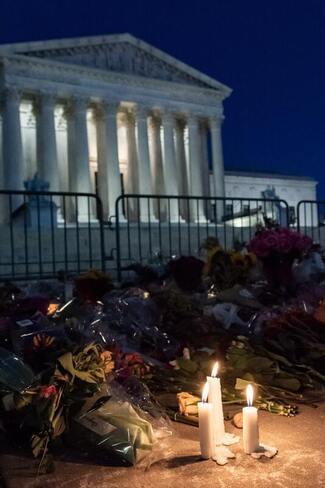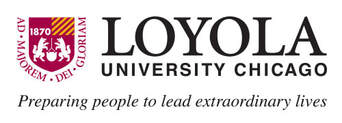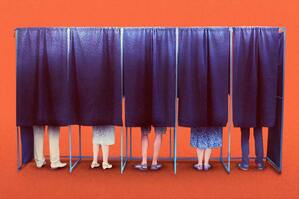 About a month after I start working on the Common Application with my students, I notice that they begin to get a little squirrelly. We’ve spent a few weeks doing straightforward data entry; then, they try to articulate how they spent the last four years in 150-character activity descriptions; and, finally, they pour their most authentic selves into their personal statements. And about two-thirds of the way through this process, they start to lose steam. But I do this every year, so I know it’s coming. This is the point where everything is messy, where everything is in progress but unfinished, so unfinished that it’s hard to imagine it being finished. But I know that it always gets done. And so I tell my students that this is like dominoes. I’m not sure if kids still play with dominoes, but they generally know what they are. And we talk about the tedious process of setting up the dominoes, of making sure that they’re evenly spaced – not too close together and not too far apart, of how uncomfortable it gets to kneel on the floor and hunch over these fussy little tiles. I tell them about how long it takes to get everything set up properly, especially if you want to do a really good job. And then I tell them about what happens next, after you’ve spent all that time lining every piece up perfectly. You get to knock them all down! And each domino tips into the one next to it, flying down the line, twisting and turning according to your personal vision. It’s awesome! And this is exactly what you get to do with your applications. Once you’ve written and revised and polished your personal statement, you get to paste it into the Writing section. Once you’ve puzzled over how to condense four years of speech and debate into one perfect 150-character line, you get that satisfying green checkmark next to Activities. And once you’ve met with your counselor and your teacher and requested your letters of rec, your Recommenders & FERPA section is ready to go. And now you get to knock down your application dominoes! Every school that doesn’t have a writing supplement can now be submitted. As soon as you finish one school’s essay about how you’ll contribute to the campus community, you get to submit another application. And when you finalize your Honors College supplement, you get to submit another application. It takes a long time to line up all the pieces, but as soon as you do, you get to submit applications left and right. So whether you’re at the beginning or middle of this process, or creeping up to that finish line, know that you’re exactly where you’re supposed to be. And the best part is right around the corner.
1 Comment
 Photo by Gayatri Malhotra on Unsplash Photo by Gayatri Malhotra on Unsplash It’s been a very long week, starting with the loss of Ruth Bader Ginsburg and continuing with the infuriating news that none of the officers involved in the death of Breonna Taylor will be indicted. And here in California, we’re preparing for another weekend of record-high temperatures, which will inevitably be accompanied by wildfires, smoke, and our return indoors. The world feels heavy this week, and I don’t have a lot of cheer. But then I go back to work and I’m reminded of the next generation of wildly impressive, ambitious, compassionate, and engaged young people. I sit down and read an essay from a student who started a club at her school to plant more trees on campus – and 175 people showed up on the first day. And I feel better. And then I read an essay from a student who interviewed Sarah Weddington, the lawyer who represented Jane Roe in Roe v. Wade, for a school project. This student now wears a necklace with the year “1973” on it to remind herself daily of this landmark decision. And I feel even better. One thing I keep hearing people say about RBG is that she worked hard to create the world she wanted to see in her own lifetime. She was thoughtful and strategic about the best way to create that world. She was particularly gracious and generous with the young people she hoped to inspire and guide. And she was tenacious, continuing forward even in the face of sexist professors and judges, insensitive colleagues, and even cancer. Looking from the outside, Ginsburg’s achievements feel superhuman – when did the woman eat or sleep? But there is a version and a level of that available to all of us. So this week, we may not be operating at peak-RBG levels. But we can channel at least a little of her drive, her introspection, and her commitment to justice, and apply that to the people and circumstances in our own lives. It’s not enough, but it’s something. May her memory be a blessing.  Earlier this week, I saw a post in my ACCEPT Facebook group addressing a letter from Marcus Mason, a former admissions officer at Loyola University Chicago. Mason addressed, in-depth, the consistent pattern of racism, discrimination, and intimidation he experienced in the Undergraduate Admissions Office, specifically from Dean of Undergraduate Admission, Erin Moriarty. This hostile workplace led him to resign his position two weeks ago, as, he points out, have several of his Black and Brown colleagues during Moriarty’s tenure. Mason specifically details a comment that Moriarty made about the Dean of the School of Education, describing him as “[B]lack, [B]lack. Like you almost can’t see him Black.” He also reports that Moriarty has repeatedly said that “she thinks it’s ‘healthy’ for one’s staff to be fearful of their boss.” And when Mason tried to address the issues he saw with Moriarty directly, with Human Resources, and with Vice President of Enrollment Management, Paul Roberts, he was met with disinterest and apathy. As an alumna of Loyola, I feel I have a responsibility to comment on this situation and express my deep disappointment in my alma mater and its leadership team. Loyola University Chicago is a Jesuit institution, one of 28 Jesuit colleges and universities in the US. For those of you who are unfamiliar with the Jesuits, this order specifically prides itself on its social justice work on behalf of low-income and marginalized peoples. Many Jesuit colleges and high schools work to educate their students to become “men and women for others” and “servant leaders.” And LUC specifically calls itself a “college with a conscience. Ethical leaders serving our communities both locally and globally.” But the treatment that Mason describes in his letter is not just, conscientious, or ethical. It’s wrong, and it needs to change. I want to believe that Loyola can change. My experience as a student there was eye-opening. In my sophomore year, I took a service-learning course on nationalism, capitalism, and feminism. Part of the course was doing weekly volunteer work, and I chose the Good News Community Kitchen. I cooked and served food alongside members of the Good News Community Church, local Boy Scouts, and a particularly charming group of middle school students. It was also the first time I became aware that there were people in my neighborhood who had jobs and apartments, but who were struggling financially to such a degree that they relied on this soup kitchen to feed their children, or simply themselves. My coursework at Loyola was integral in correcting some of the naïveté and ignorance I harbored. Loyola was also one of the first college campuses in the nation to produce the stage version of the award-winning film Dead Man Walking. In conjunction with this production, Loyola organized numerous educational events highlighting the injustice of the death penalty. I remember attending a panel discussion with two men who had exonerated by DNA evidence thanks to the work of the Innocence Project. What sticks with me 16 years later is how little support these men had when they were released - a couple hundred dollars and transportation to a friend or family member’s house. These were innocent men who had been wrongfully imprisoned for years, and yet, there was no push to right that injustice. These men had paid a debt to society that they did not owe, and we just shrugged. Again, this is a serious issue I had never considered until I was confronted with it at Loyola. My four years at Loyola changed me. I left more aware of the inequalities in our justice system, our education system, and our governmental policies. And Loyola educated me to believe that I could make those things better, that I could be a force for good in the world. But all of that is minimized, undercut, canceled out if the people who lead the school, who create the policies, who allocate scholarships and grants, and who literally decide who gets in and who doesn’t don’t live and work by these principles. Marcus Mason has made it clear that Erin Moriarty does not believe in the tenets of social justice that Loyola claims to embody. So she must go. In her place, Mason has recommended Senior Associate Director, Todd Malone, whom he describes as “the leader the Undergraduate Admission Office deserves.” I fully support Mason’s recommendation and hope Loyola’s administration will take swift action to correct the injustice in their own house – in our own house.  It’s the most wonderful time of senior season – Common App Guide Day! On Wednesday, we released the newest edition of our annual guide to filling out the Common Application, a project that I am always incredibly proud to be a part of. This year, I was particularly excited to work on this piece because I knew students were going to have more questions than ever: about how to input their Pass/Fail courses from last spring, how to explain new activities that they picked up during quarantine, and how (or whether) to answer that brand-new COVID-19 question. My favorite thing about working with Collegewise is getting to collaborate with so many smart, thoughtful people. I don’t single-handedly know the answer to every question that has come up in this bizarre application season. So I have really valued getting to hear my colleagues’ perspectives on these topics, eventually coming to a recommendation – or recommendations – for our students and the communities we serve that we can feel confident about. But this is a very special week because, in addition to publishing the latest edition of the Common App Guide, Collegewise also announced its newest offering: Runway. Runway is a collection of free resources for high school students and their parents, breaking down the entire college admissions process. Seniors will find video tutorials and documents showing them exactly how to get from square one to submit, including building and finalizing a college list, making the most of the activity summary, and writing the strongest possible supplemental essays. And underclassmen can get a head start on making a standardized testing timeline in the age of COVID cancellations, preparing for college visits and taking advantage of the new virtual options, and finding their best-fit schools. And did I mention that all of this is free? Whether you’re just starting to think about filling out your college applications or you’ve been working on them diligently all summer, each of these resources will help you maximize the effort you’re putting into this project, ensuring that you get all the pieces in place as fully and effectively as possible. And in the midst of this wild and unpredictable school year, that is definitely something to celebrate.  Photo by Morning Brew on Unsplash Photo by Morning Brew on Unsplash When I was 17, I took one of the best classes of my high school career, American Government and Economics. My teacher, Mr. Larsen, was one of the first people I knew who had given immense thought and consideration to the concept of American democracy. Our very first assignment was to take the US Naturalization Test. Unsurprisingly, we mostly blew it. Despite having 11 years of American public and private school education, I honestly wasn’t sure how many members of congress there were in the House of Representatives. Mr. Larsen’s goal was for all of his students to pass the citizenship test handily by the end of the semester. And we did. There were a lot of other standout moments from that class, including the month we spent organizing and running our own political party convention. But the experience that has stuck with me the most over the years is the day I spent working at my local polling station. I will confess, my motivations weren’t entirely civically minded. Mr. Larsen offered every student who served as a poll worker extra credit. Extra credit AND you get to miss a day of school – it was a no-brainer. I remember having to wake up even earlier than I usually did for my 7:40am school day. But that just meant people could squeeze their voting in between dropping their kids off and heading to work. I remember getting a whole hour for my lunch break – a true luxury in the context of my high school schedule that allotted only 35 minutes to get all the way to Taco Bell and back. I brought chocolate chip cookies back for the other poll workers and felt like a true hero. And when my mom picked me up that night, one of the other volunteers told her that if it weren’t for Mr. Larsen’s Government students, they would have had a lot of trouble staffing their polling locations. Even though it was small, I had made a contribution. The reason this comes to mind is because Wednesday was National Poll Worker Recruitment Day. The majority of the people who volunteer and work at the polls in this country are over 61 years old, right in the category of people most at risk of COVID-19 complications. States and counties generally have difficulty staffing their polling locations, and this year will be even more of a challenge. So maybe we should follow Mr. Larsen’s lead and tap into all that pent-up youth energy. Working at the polls is not for everyone. If you or someone you live with is immunocompromised, sitting indoors with a bunch of strangers all day is not a good idea. But if you’re healthy and you can, I’d love to see a bunch of teenagers take on this responsibility. And you don’t have to be one of those kids who spends your weekends at Model UN conferences and can quote The West Wing from memory. Do it because you get to take the day off of school – and in many places, you get paid! It doesn’t matter why you work at the polls, just that you do. If you’re interested, you can start the sign-up process here: https://www.powerthepolls.org/. Or you can visit your local county elections office website. You won’t necessarily get extra credit (although you should), but you’ll have a pretty memorable day. Take it from me. |
What is the When I Was 17 Project?When I Was 17 is a blog series dedicated to collecting the varied stories of people's career paths, what they envisioned themselves doing when they were teenagers and how that evolved over the course of their lives. I started this project with the goal of illustrating that it's okay not to know exactly what you want to do when you're 17; many successful people didn't, and these are a few of their stories.
Archives
October 2020
|